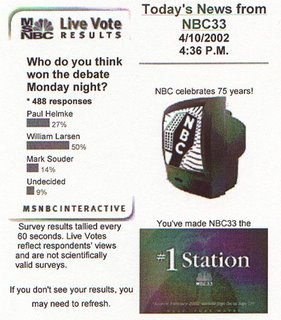Non College Bound Students
http://eric.ed.gov/ERICWebPortal/Home.portal?_nfpb=true&_pageLabel=RecordDetails&ERICExtSearch_SearchValue_0=ED262256&ERICExtSearch_SearchType_0=eric_accno&objectId=0900000b800ffcd5
A study showed that high school students who are not planning to attend college full time should combine vocational and academic course work to maximize their success in the labor market. In a study of non-college bound youth (based on the High School and Beyond Survey data) that examined the impact of high school curriculum, grades, and performance on standardized tests on labor market success, the following results were found:
- taking additional vocational courses is associated with only a small reduction in the number of academic courses taken;
- taking additional vocational courses is strongly associated with success in the labor market immediately after high school;
- taking additional academic courses is not associated with higher earnings immediately after high school;
- taking a combination of 16 or more academic and vocational courses during the last three years of school enabled students to have greater labor market success than taking fewer than 10 such courses; and
- good grade point averages and standardized test scores generally had mixed effects on labor market outcomes.
Counselors can help students select the proper balance between academic and vocational subjects to ensure labor market success, and vocational teachers can help students secure jobs.
Two separate studies show there are two distinct curriculum students should take depending on what they plan to do after high school. However, in both cases, increased number of courses does not appear to influence either college bound or straight to labor force choices. It is clear that Academic courses such as math, English, science, Social Studies and language should be the objective of any college bound student. What is not so clear are what courses are considered vocational.
As an engineer I would have enjoyed taking engineering courses in high school had they been offered, but that would have been a mistake. I ended up taking four years of math, English, science, social studies and three years worth of language. Had I decided not to attend college those engineering courses offered at Carroll it would be doubtful these courses would have helped me later on. The real world is a tough environment and you are competing against some excellent non degree individuals who have year’s worth of proven experience. In over 20 years worth of experience at many large and small companies, I have never come across a non degreed individual who was offered a position based on high school curriculum classes. I have seen non degreed individuals do very well, but only after they have gained experience in the field and earned a reputation as one with good work ethics. These individuals have good mathematics, English and communication skills.
Recommended courses to develop essentail skills would be:
Blue print reading – 2 weeks
Sketching (non cad) – 3 weeks
Printing by hand – 3 weeks
Problem solving – 3 weeks
Use of fittings and tools.
Basic electricity
These were the courese offered in the past and seem to have been replaced by technology. However, they are critical today in communicating an idea from the shop floor to those responsible. If you cannot draw, print or communicate any idea you might have to improve something will be difficult to get anyone to listen to you.



2 Comments:
Instead of constantly pushing college on kids who don't want to go, guidance councilers should stress job training. Not everyone is going to Havard, or even IPFW.
So true, Robert. Not everyone wants to go to college, or would thrive in a college environment. But just because they may not head to a 4-year university or community college doesn't mean they can't get trained and certified in another line of work that will yield a rewarding and lucrative career. I mean, truck driving school, HVAC certification, cosmetology schools - there are so many options!
Post a Comment
<< Home